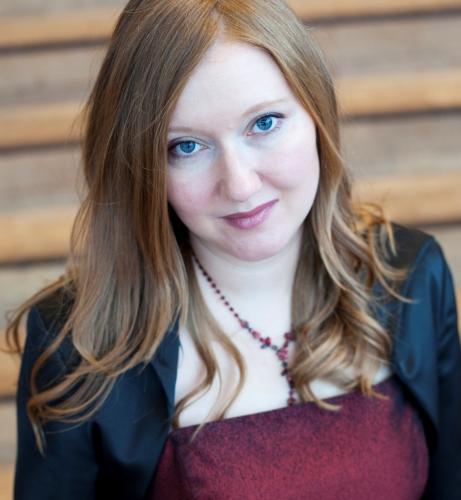Amsterdam Baroque Orchestra, Koopman, Christ Church Spitalfields | reviews, news & interviews
Amsterdam Baroque Orchestra, Koopman, Christ Church Spitalfields
Amsterdam Baroque Orchestra, Koopman, Christ Church Spitalfields
Drama both on and offstage in this opening concert of the Spitalfields Summer Festival

It’s one thing for UK Border Control to turn Heathrow’s Arrivals into a giant theme-park queue, but it’s quite another when they start messing with our music. Paperwork issues yesterday saw one Japanese and two Korean members of the Amsterdam Baroque Orchestra denied entry to the UK, leaving Ton Koopman and his band too under-staffed to attempt their planned Brandenburg Concerto.
One of the particular delights of the festival is its characterful venues, including both the Palladian Shoreditch Church and Hawksmoor’s Christ Church Spitalfields. The bells of the latter were pealing out as we approached for last night’s concert – a sacred fanfare and prelude to a programme of Bach cantatas and the composer’s Suite No 1 in C major.
There's a playfulness and an irreverence towards the material
The stately Ouverture, driven with percussive impulsion by the lower strings, set the pace for the programme, revealing the unusual heft of this period ensemble. Not for them the brighter colours of the Freiburg Baroque Orchestra or Concerto Koln; the ABO takes its base shade from cellos and bassoons – more oak than pine – and gestures of phrasing and articulation match it for impact. The effect is felt in the gut, a texture that has weight without ever becoming weighty.
Certainly there was nothing laboured about Rebecca Mertens’ virtuosic bassoon lines in the Ouverture, nor the gauzy dancing of upper strings in the Courante that followed. The Gavottes brought the pair of oboes to the fore, acid against the backing string texture, and anticipating Antoine Toruncyk’s obbligato passages in the cantatas, while the Minuets were as poised as any 18th-century roué in their graceful dip and sway.
The interplay of the ensemble, directed by Koopman from the harpsichord, is like an opinionated conversation among old friends. While things never degenerate into outright disagreement, there's a playfulness and an irreverence towards the material that emerged most clearly in the ferocious front-of-the-beat attack in the Bouree and later in the closing Gavotte of Cantata BWV 202, in which Koopman and his cellists strove to outdo one another in physical strength.
 While the programme might have worked better texturally with the three cantatas split around the orchestral suite, both Mields and Bach’s own orchestration strove to offer variety and contrast. The joyous Cantata BWV 51 offers its soloist little time to settle in, before launching (complete with obbligato trumpet) into some of the composer’s most thanklessly instrumental writing for voice. Endless runs culminate breathlessly at the top of the voice, and while a few were (quite understandably) a little snatched, Mields’s (pictured right) charming and vivid delivery, as well as the relaxed beauty of her tone, carried us along with her. “Hochster, mache deine Gute” offered more space for the voice, and with the accompaniment stripped back to continuo Mields was free to play expressively with the church’s acoustic – something that continued through the rather more brooding Cantata BWV 199.
While the programme might have worked better texturally with the three cantatas split around the orchestral suite, both Mields and Bach’s own orchestration strove to offer variety and contrast. The joyous Cantata BWV 51 offers its soloist little time to settle in, before launching (complete with obbligato trumpet) into some of the composer’s most thanklessly instrumental writing for voice. Endless runs culminate breathlessly at the top of the voice, and while a few were (quite understandably) a little snatched, Mields’s (pictured right) charming and vivid delivery, as well as the relaxed beauty of her tone, carried us along with her. “Hochster, mache deine Gute” offered more space for the voice, and with the accompaniment stripped back to continuo Mields was free to play expressively with the church’s acoustic – something that continued through the rather more brooding Cantata BWV 199.
Bach’s accompaniments are rarely straightforward supporting roles, and in Cantatas 199 and 202 the orchestra had plenty of opportunity to engage with Mields. A brisk viola solo sits alongside the voice’s unadorned chorale, while elsewhere a solo oboe swarms elegantly in and around the vocal line. Yet nowhere were these decorative touches more effective than in the opening of Cantata 202. The text paints a scene of pastoral fecundity, which grows out of simple string arpeggios, flourishing organically into an oboe melody, itself then transformed into the first entry of the voice – gorgeously handled by Koopman and Mields.
This year’s Spitalfields Summer Festival has a Dutch strand running through it, and there are few ensembles that could so proudly and persuasively champion that nation than Koopman and the Amsterdam Baroque Orchestra. Hearing them live at all is a rare pleasure in the UK, but to hear them performing the music of Bach in a church of Bach’s own era is still more rare, especially when Border Control have their way.
Explore topics
Share this article
The future of Arts Journalism
You can stop theartsdesk.com closing!
We urgently need financing to survive. Our fundraising drive has thus far raised £49,000 but we need to reach £100,000 or we will be forced to close. Please contribute here: https://gofund.me/c3f6033d
And if you can forward this information to anyone who might assist, we’d be grateful.

Subscribe to theartsdesk.com
Thank you for continuing to read our work on theartsdesk.com. For unlimited access to every article in its entirety, including our archive of more than 15,000 pieces, we're asking for £5 per month or £40 per year. We feel it's a very good deal, and hope you do too.
To take a subscription now simply click here.
And if you're looking for that extra gift for a friend or family member, why not treat them to a theartsdesk.com gift subscription?
more Classical music
 From Historical to Hip-Hop, Classically Black Music Festival, Kings Place review - a cluster of impressive stars for the future
From quasi-Mozartian elegance to the gritty humour of a kitchen inspection
From Historical to Hip-Hop, Classically Black Music Festival, Kings Place review - a cluster of impressive stars for the future
From quasi-Mozartian elegance to the gritty humour of a kitchen inspection
 Shibe, LSO, Adès, Barbican review - gaudy and glorious new music alongside serene Sibelius
Adès’s passion makes persuasive case for the music he loves, both new and old
Shibe, LSO, Adès, Barbican review - gaudy and glorious new music alongside serene Sibelius
Adès’s passion makes persuasive case for the music he loves, both new and old
 Anja Mittermüller, Richard Fu, Wigmore Hall review - a glorious hall debut
The Austrian mezzo shines - at the age of 22
Anja Mittermüller, Richard Fu, Wigmore Hall review - a glorious hall debut
The Austrian mezzo shines - at the age of 22
 First Person: clarinettist Oliver Pashley on the new horizons of The Hermes Experiment's latest album
Compositions by members of this unusual quartet feature for the first time
First Person: clarinettist Oliver Pashley on the new horizons of The Hermes Experiment's latest album
Compositions by members of this unusual quartet feature for the first time
 Gesualdo Passione, Les Arts Florissants, Amala Dior Company, Barbican review - inspired collaboration excavates the music's humanity
At times it was like watching an anarchic religious procession
Gesualdo Passione, Les Arts Florissants, Amala Dior Company, Barbican review - inspired collaboration excavates the music's humanity
At times it was like watching an anarchic religious procession
 Classical CDs: Camels, concrete and cabaret
An influential American composer's 90th birthday box, plus British piano concertos and a father-and-son duo
Classical CDs: Camels, concrete and cabaret
An influential American composer's 90th birthday box, plus British piano concertos and a father-and-son duo
 Cockerham, Manchester Camerata, Sheen, Martin Harris Centre, Manchester review - re-enacting the dawn of modernism
Two UK premieres added to three miniatures from a seminal event of January 1914
Cockerham, Manchester Camerata, Sheen, Martin Harris Centre, Manchester review - re-enacting the dawn of modernism
Two UK premieres added to three miniatures from a seminal event of January 1914
 Kempf, Brno Philharmonic, Davies, Bridgewater Hall, Manchester review - European tradition meets American jazz
Bouncing Czechs enjoy their Gershwin and Brubeck alongside Janáček and Dvořák
Kempf, Brno Philharmonic, Davies, Bridgewater Hall, Manchester review - European tradition meets American jazz
Bouncing Czechs enjoy their Gershwin and Brubeck alongside Janáček and Dvořák
 Solomon, OAE, Butt, QEH review - daft Biblical whitewashing with great choruses
Even a top soprano and mezzo can’t make this Handel paean wholly convincing
Solomon, OAE, Butt, QEH review - daft Biblical whitewashing with great choruses
Even a top soprano and mezzo can’t make this Handel paean wholly convincing
 Two-Piano Gala, Kings Place review - shining constellations
London Piano Festival curators and illustrious friends entertain and enlighten
Two-Piano Gala, Kings Place review - shining constellations
London Piano Festival curators and illustrious friends entertain and enlighten
 Echo Vocal Ensemble, Latto, Union Chapel review - eclectic choral programme garlanded with dance
Beautiful singing at the heart of an imaginative and stylistically varied concert
Echo Vocal Ensemble, Latto, Union Chapel review - eclectic choral programme garlanded with dance
Beautiful singing at the heart of an imaginative and stylistically varied concert
 Scott, Irish Baroque Orchestra, Whelan, RIAM, Dublin review - towards a Mozart masterpiece
Characteristic joy and enlightenment from this team, but a valveless horn brings problems
Scott, Irish Baroque Orchestra, Whelan, RIAM, Dublin review - towards a Mozart masterpiece
Characteristic joy and enlightenment from this team, but a valveless horn brings problems

Add comment